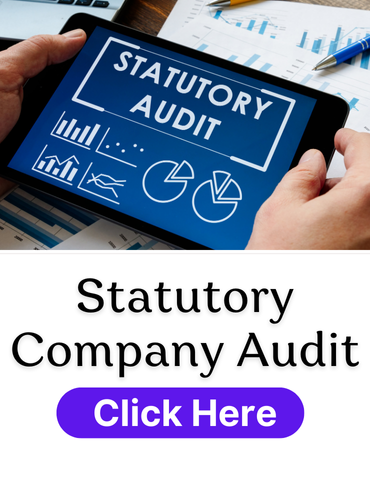Change in Object Clause
Original price was: ₹25,000.00.₹12,000.00Current price is: ₹12,000.00.
*18% GST will be Applicable*
*For better experience & guidance we recommend you to talk with our experts*
Description
Change in Object Clause
The Object Clause of a company’s Memorandum of Association defines the primary and ancillary objectives for which the company is established and operates. It outlines the specific activities and purposes that the company is authorized to undertake. A Change in Object Clause refers to the process of amending or altering these objectives to accommodate new business activities, ventures, or strategic directions. Here’s a detailed overview of a Change in Object Clause:
1. Understanding the Object Clause:
– The Object Clause is a crucial component of a company’s Memorandum of Association, which is a legal document defining the company’s constitution and scope of operations.
– It specifies the main and ancillary objects for which the company is established, delineating the boundaries within which the company can conduct its business activities.
2.Reasons for Change:
– Companies may seek to amend their Object Clause for various reasons, including:
– Diversification of business activities into new sectors or industries.
– Expansion of existing operations into related or complementary areas.
– Adoption of new technologies or business models.
– Strategic realignment or repositioning in response to market dynamics or regulatory changes.
3. Legal Framework:
– A Change in Object Clause must comply with the relevant legal provisions, including the Companies Act or other applicable corporate laws in the jurisdiction where the company is incorporated.
– Companies may need to adhere to specific procedures and obtain approvals from regulatory authorities, shareholders, or other stakeholders as mandated by the law.
4. Procedure for Amendment:
– The procedure for amending the Object Clause typically involves the following steps:
– Conducting a board meeting to propose the amendment and obtain approval from the board of directors.
– Calling an extraordinary general meeting (EGM) to seek approval from shareholders through a special resolution.
– Filing the resolution and amended Memorandum of Association with the Registrar of Companies (ROC) or relevant regulatory authority for approval and registration.
5. Drafting the Amendment:
– The proposed amendment to the Object Clause must be drafted carefully, clearly articulating the new objectives and purposes for which the company seeks authorization.
– The drafting process may involve legal experts or corporate advisors to ensure compliance with legal requirements and alignment with the company’s strategic goals.
6. Approval and Registration:
– Once the special resolution approving the amendment is passed at the EGM, the company must file the resolution and amended Memorandum of Association with the ROC or relevant regulatory authority for approval and registration.
– Upon registration, the amended Object Clause becomes legally effective, and the company can commence its operations in accordance with the newly authorized objectives.
7. Implications and Considerations:
– Companies should carefully consider the implications of amending their Object Clause, including potential impacts on corporate governance, contractual obligations, taxation, and stakeholder interests.
– It’s essential to communicate the changes effectively to shareholders, investors, creditors, and other relevant stakeholders to ensure transparency and alignment with the company’s strategic vision.
8. Compliance and Reporting:
– Companies must maintain compliance with the amended Object Clause and adhere to the authorized business activities specified therein.
– Periodic reporting obligations may require companies to disclose changes in their Object Clause in their financial statements, annual reports, and other regulatory filings.
9.Relevance in Corporate Transactions:
– A Change in Object Clause may be relevant in corporate transactions such as mergers, acquisitions, or restructuring, where the company’s objectives and business scope may need to be aligned with the transactional objectives.
10. Seeking Professional Guidance:
– Given the legal and procedural complexities involved in amending the Object Clause, companies are advised to seek professional guidance from legal advisors, corporate consultants, or chartered accountants to ensure compliance and mitigate risks associated with the amendment process.
In summary, a Change in Object Clause is a significant corporate action that requires careful consideration, compliance with legal requirements, and effective communication with stakeholders. By navigating the process diligently and seeking appropriate guidance, companies can adapt to changing business environments and pursue strategic objectives in a legally compliant manner.
10 (FAQ) about Change in Object Clause:
1. What is a Change in Object Clause?
– A Change in Object Clause refers to the process of amending the objectives and purposes outlined in a company’s Memorandum of Association to accommodate new business activities or strategic directions.
2. Why would a company need to amend its Object Clause?
– Companies may need to amend their Object Clause to diversify into new sectors, expand existing operations, adopt new technologies, or align with changing market dynamics and regulatory requirements.
3. What legal framework governs the amendment of Object Clauses?
– The amendment process is governed by the relevant provisions of the Companies Act or other corporate laws applicable in the jurisdiction where the company is incorporated.
4. What is the procedure for amending the Object Clause?
– The procedure typically involves obtaining approval from the board of directors, calling an extraordinary general meeting (EGM) to pass a special resolution, and filing the resolution and amended Memorandum of Association with the Registrar of Companies (ROC) for approval and registration.
5. Who needs to approve the amendment of the Object Clause?
– The amendment requires approval from the board of directors and shareholders of the company through a special resolution passed at an EGM.
6. What are the implications of amending the Object Clause?
– Amending the Object Clause may have implications on corporate governance, contractual obligations, taxation, and stakeholder interests, which companies need to carefully consider.
7. Is there a specific format for drafting the amendment to the Object Clause?
– While there is no prescribed format, the proposed amendment must be drafted clearly and accurately, articulating the new objectives and purposes for which the company seeks authorization.
8. How long does it take to complete the process of amending the Object Clause?
– The duration varies depending on factors such as the complexity of the amendment, regulatory requirements, and the efficiency of the filing process with the Registrar of Companies.
9. Can the amendment of the Object Clause be reversed or revoked?
– Once approved and registered, the amendment becomes legally effective. Reversing or revoking the amendment would require following a similar procedure for further changes, subject to legal and regulatory considerations.
10. Where can companies seek guidance on amending their Object Clause?
– Companies can seek guidance from legal advisors, corporate consultants, or chartered accountants with expertise in corporate law and compliance to navigate the process effectively and mitigate risks associated with the amendment.
For More Information : https://taxgyany.com/product/change-in-object-clause/





Reviews
There are no reviews yet.